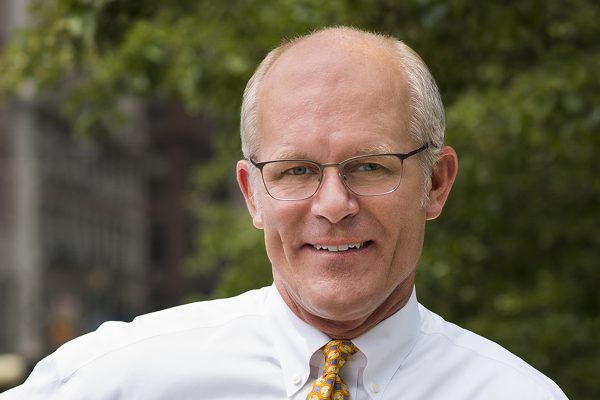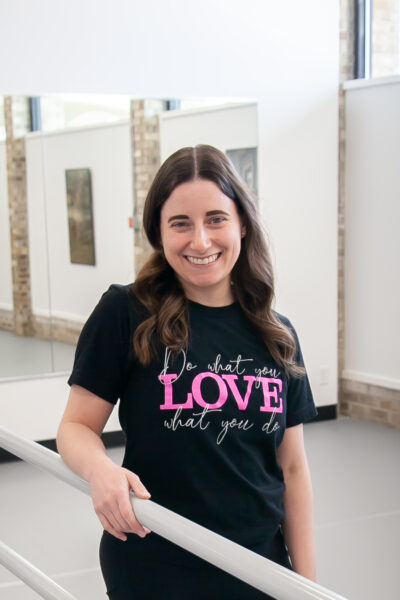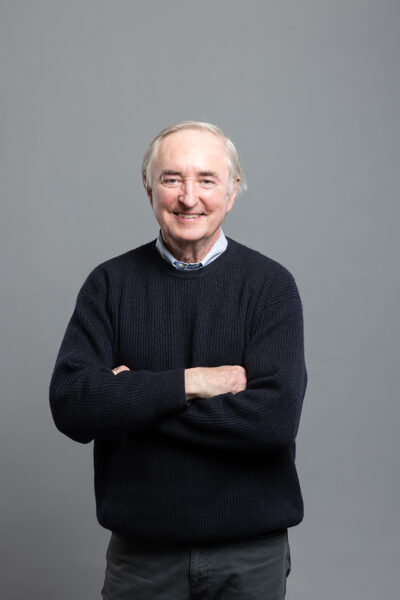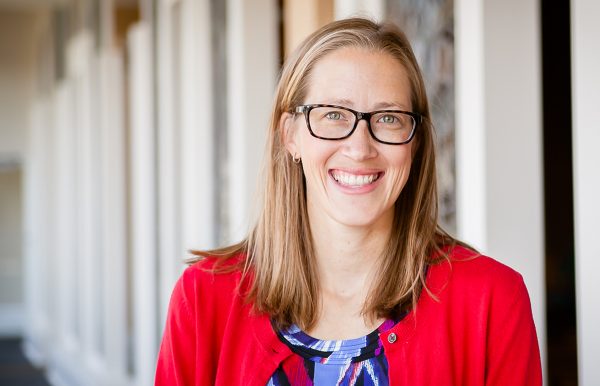Where the River Bends: A world premier
The Quad City Symphony Orchestra is celebrating its 100th anniversary this year. As part of the celebration, the symphony commissioned Bill Campbell, St. Paul member and coordinator of contemporary music, and others to write new music. Each composer has written concert openers for their Masterworks series.
The world premier of Bill’s piece, Where the River Bends, will be on March 7 and 8. The concert features American composers and guest pianist Joel Fan.
Bill recently answered a few questions about the piece and his life as a musician.
Can you describe the piece? How was it named?
Being asked to compose music to help celebrate the 100th Anniversary of the Quad City Symphony is also a chance to honor the heritage of this region as a microcosm of our country. Where the River Bends is a musical depiction of an American landscape. The strings provide foundation and swooping commentary; clarinets flow like the movement of a river; lower pitched instruments are grounding and substantive; the oboes, flutes and brass tend the organic lyrical idea like an honest farmer works the earth.
The music starts softly in the strings and solo winds, depicting perhaps a quiet morning, illuminating the beautifully simple landscape we call home. A single pitch outside the opening harmonic area heralds a change to quick overlapping patterns and strong melodic statements in the brass. After a few cadences we move to a more reflective character and a new harmonic area, yet still with movement in the strings. A duet with flute and oboe carry us through and into the return to the loud, bold music of before, and the piece ends in an assuring manner.
Although suggestive of a specific locale, Where the River Bends is not necessarily in reference to any particular place. I composed it as a musical depiction of any moment or scene when we are pleasantly surprised with beauty, as when we turn a corner or come over a mountain and our senses are awakened to simple grandeur. It is intended to honor this American landscape and the people who live here with music that is pastoral and exuberant, peaceful and bold.
What is your process for writing a work like this?
For me, purely instrumental music has a different formative process than music that features words and vocalists. Sometimes the idea comes by improvising at the piano, other times the music forms in my mind as a concept with a title, narrative, or from being inspired by a natural scene. I work with the musical ideas that come to me by writing them out on notation paper and start manipulating how they might change through time.
During the composing process individual musical ideas (melodies, motives, counterpoint, rhythms) take on an almost geometric identity for me so I can reshape or combine these into different ideas and develop them. The same thing happens when I’m improvising at the piano, only instead of working it out on the page for other performers I’m exploring the musical options live through my fingertips.
When composing for large ensemble I try and keep a performer’s perspective so that the music is inherently idiomatic for the group. Then it’s only toward the end of the process that I enter music into a music notation program on my computer, which saves a lot of time when you have to create a full score of the music and all the individual players’ parts.
For this orchestral piece I knew I wanted to write music that is welcoming for the audience, features the brass instruments and some solo woodwinds, and with the strings providing a supportive and commentary role. I think it’s a very “American” sounding piece in the evocative sense. As I worked with the melodic material it just took on this identity that seemed to depict a landscape through music. The title came mid-composing, and with that decision the overall form of the composition took shape and the music flowed even easier.
Why do you compose music?
What is the first piece you composed?
How did you start in music? As a child, I am guessing?
The music comes to me as any idea would, and I’ve always been curious about the choices other composers make. So sometimes it’s fun to take an idea from someone else and rework it in a series of variations or in a free-flowing fantasy. Working my own ideas can be even more satisfying. I started playing piano when I was six years old and kept playing as I joined choirs, and learned other instruments (to varying degrees, but never to the level at which I play piano). Improvising and composing was just part of what I did at the piano when I’d practice for lessons. As I got better at playing, I learned to practice by repeating small sections of music (which is the way we all do it), and I’d wonder why a composer made a decision to develop a theme. That was how I entered the musical space of each piece: through wonder about small and large musical decisions unique to each composer.
By about 12 years old it didn’t matter what the music was, I’d go to lessons and ask my teacher why a composer had chosen a particular harmony or melodic treatment. I even re-composed small sections to see if I could get more inside the heads of the great composers. So for me, music practicing is integrally tied to the actual making of music. Playing in rock and jazz bands for me, then, was also sort of natural because of the importance in those genres on improvisation within given forms.
What’s been the best part of this Quad City Symphony Orchestra experience for you?
It may be too early to say because the best part of the whole experience may yet be reached. I love the process, and composing is a beautifully rewarding experience in itself. But I also like sharing my creative work with others and look forward to hearing from people about what they got out of it. It’s been a few years since QCSO performed a piece of mine and I’m just trying to enjoy it all – the composing, the rehearsals and the performance.
What do you hope people will take away from it?
My hope is that at the upcoming concerts people hear my music as a celebration of the QCSO, one of our wonderful arts organizations, and might even feel a pride of place. I also hope they want to hear the music again, or even more music by myself and other living composers.




